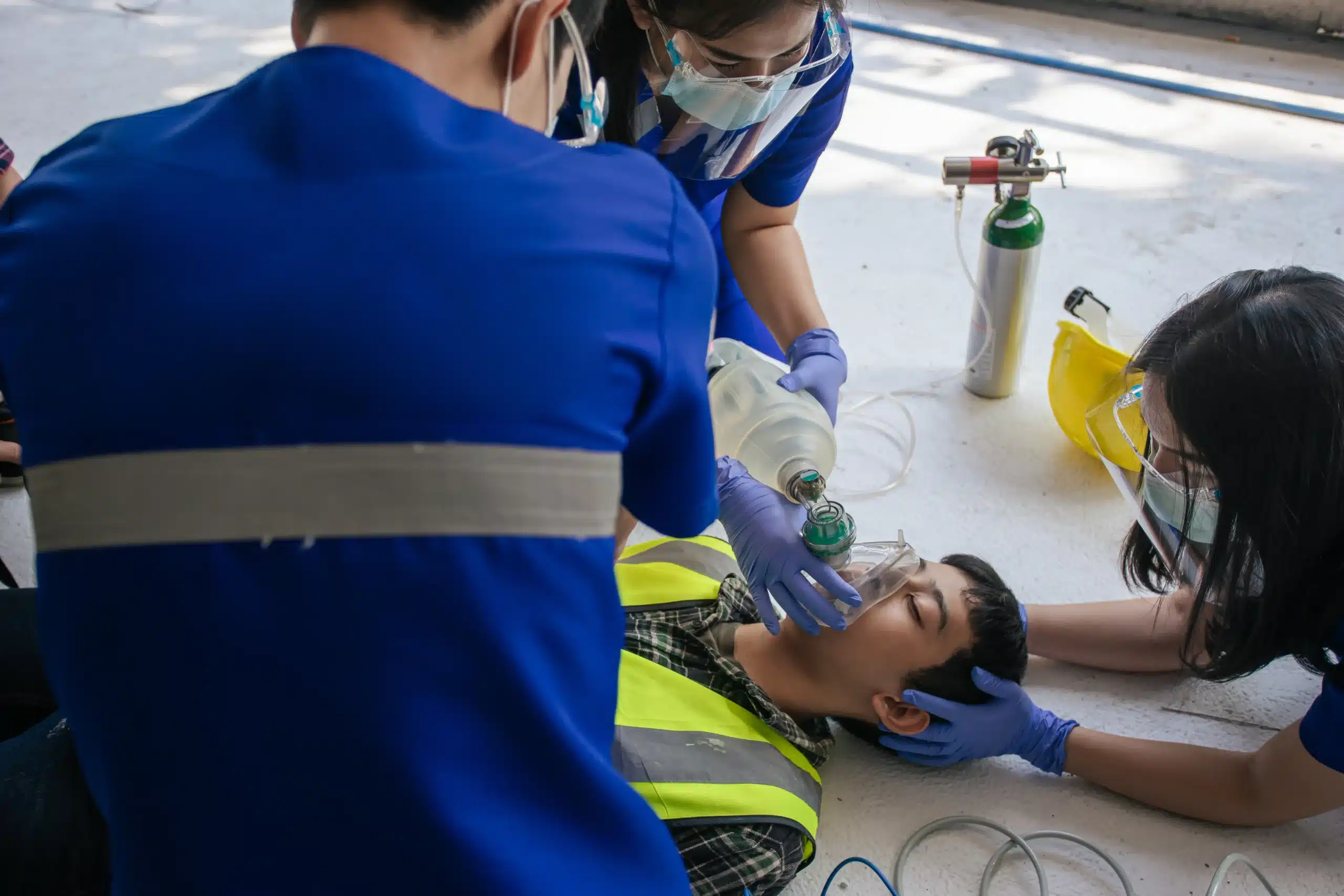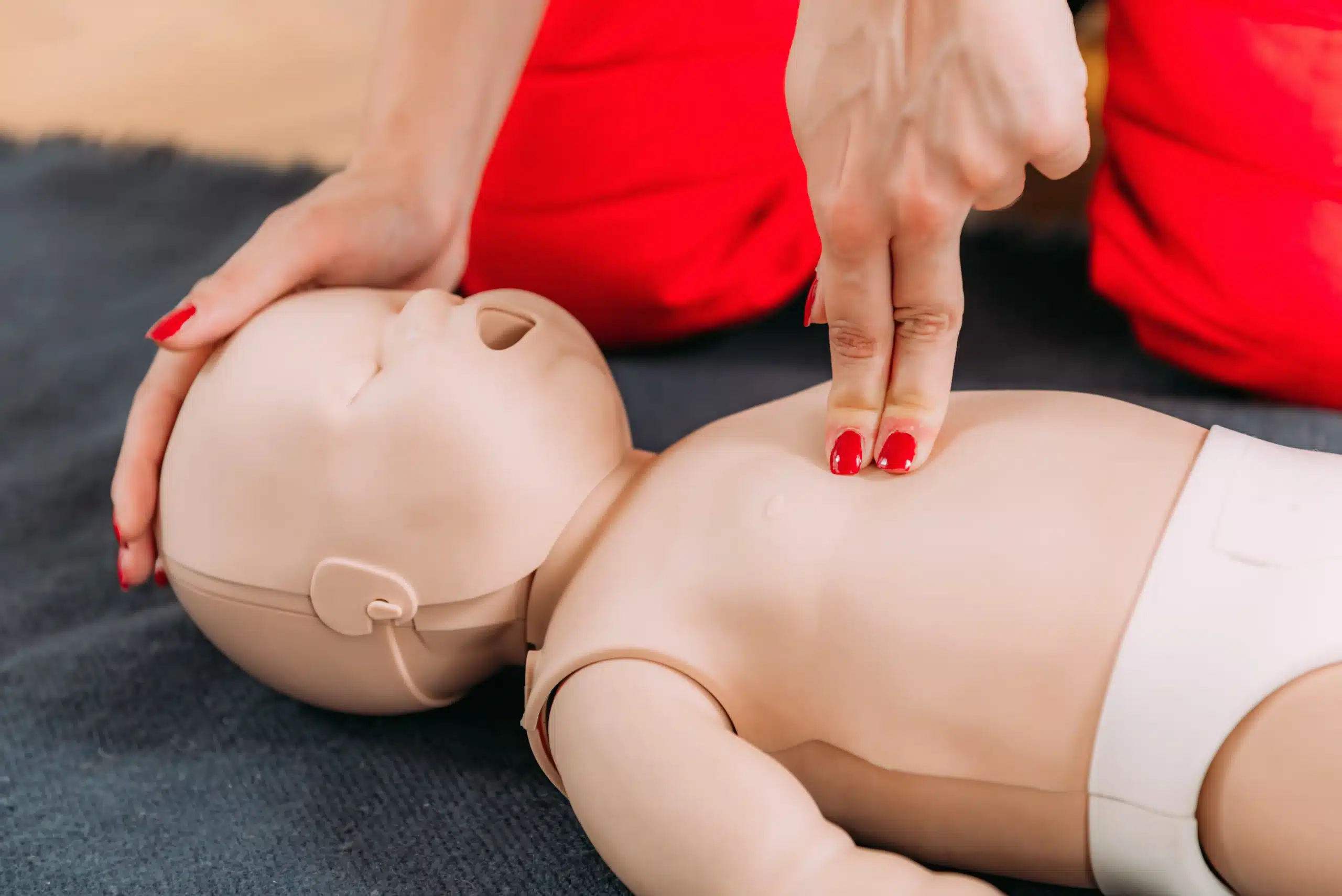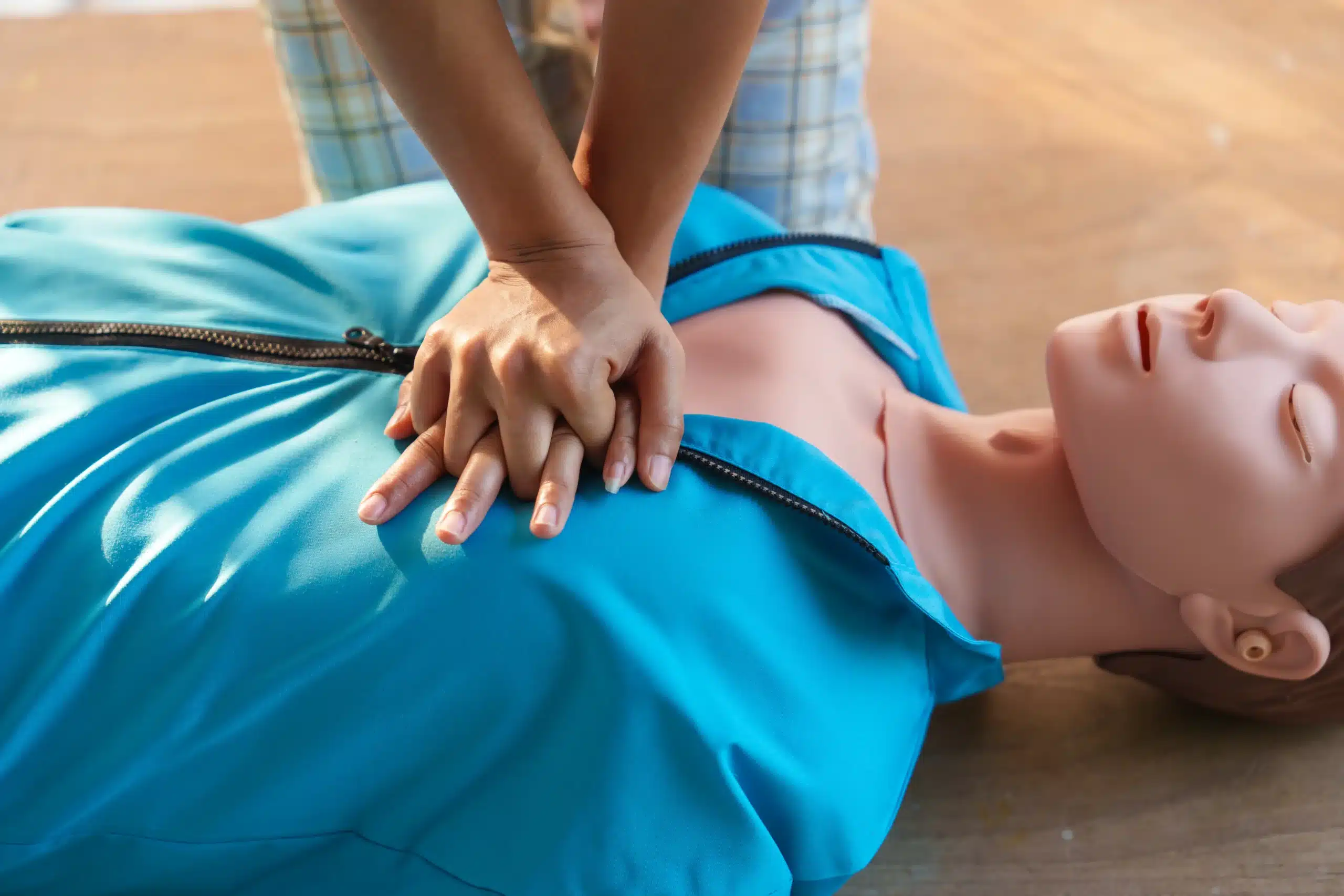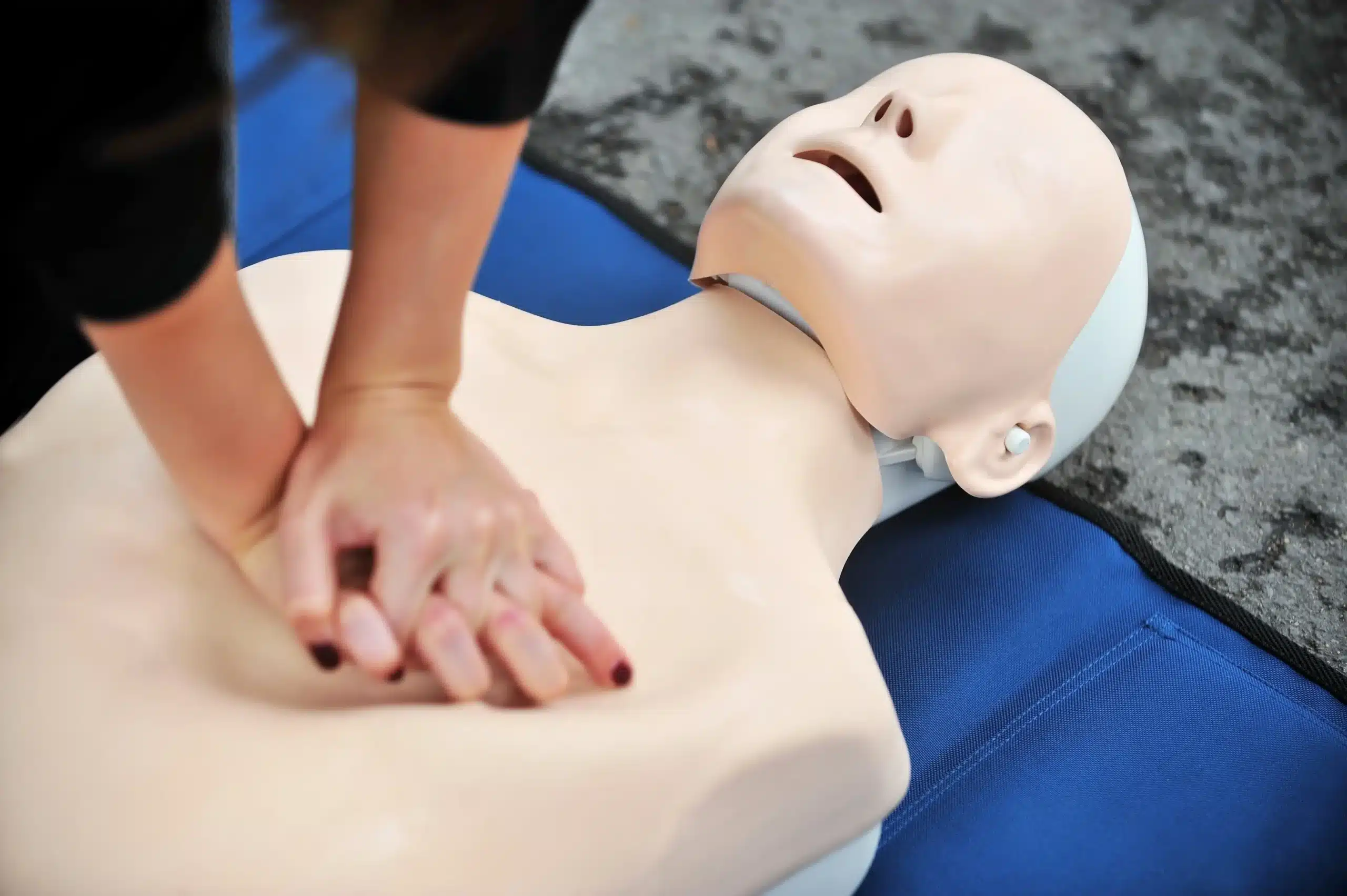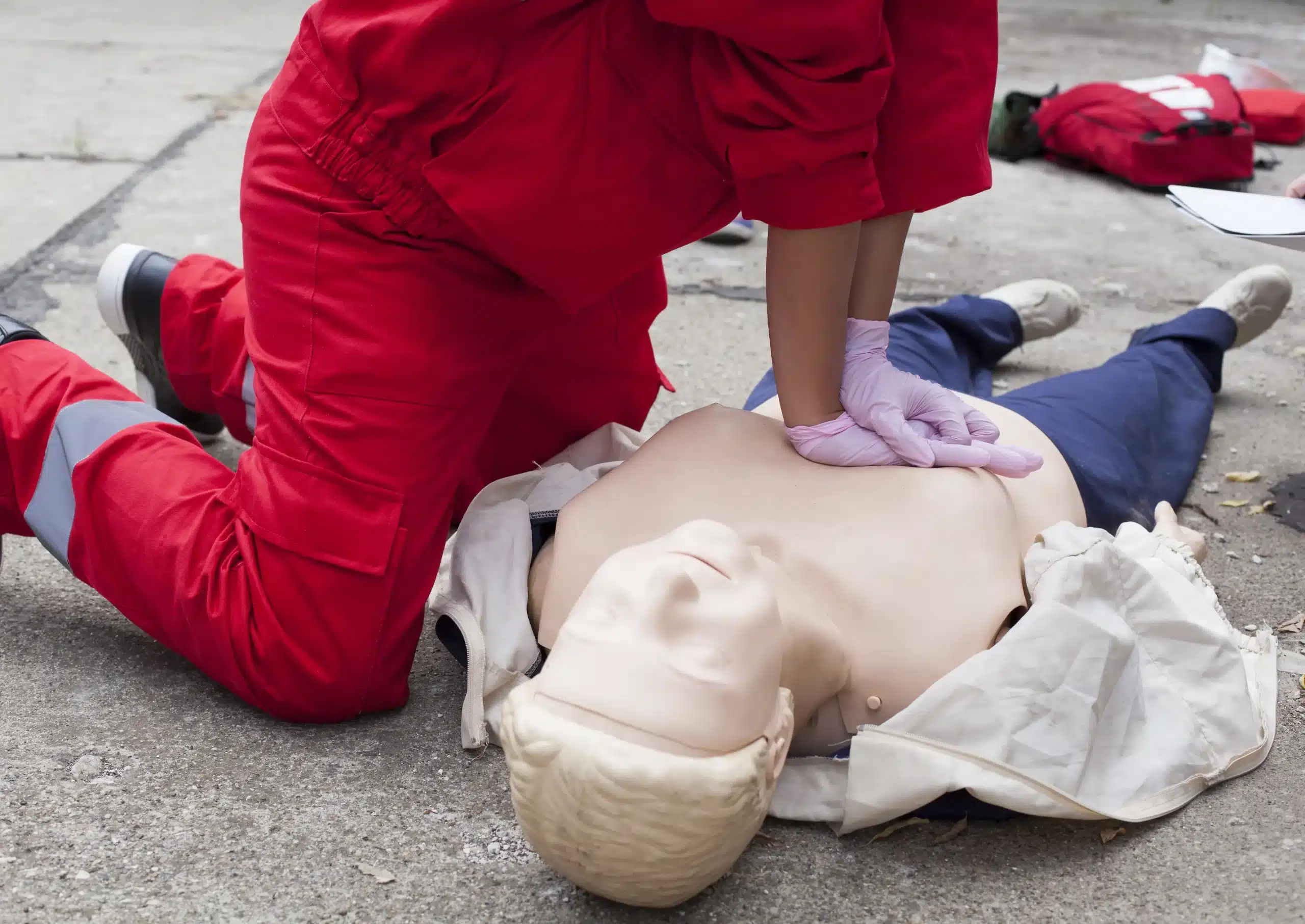In a city as dynamic as San Francisco, being prepared for emergencies is essential. CPR is a skill that empowers you to make a difference when it matters most. But like any vital skill, CPR requires regular upkeep. That’s why CPR renewal in SF is so important. It’s how you stay current with the latest guidelines and techniques, ensuring you can provide the most effective care in a crisis. This article will guide you through the process of CPR renewal in SF, covering everything from the benefits of staying up-to-date to choosing the right course and overcoming common renewal challenges. Whether you’re a healthcare professional, a concerned parent, or simply someone who wants to be prepared, this guide will provide valuable insights into maintaining your life-saving skills.
Key Takeaways
- Regular CPR renewal ensures you have the most current life-saving skills. Find a convenient course format—online, in-person, or blended—that works for you.
- Select a CPR renewal provider based on factors like accreditation, instructor experience, and course affordability. Ask questions to find the best fit for your needs.
- Maintain your CPR skills between renewals through regular practice and staying informed about updated guidelines. Resources like online refreshers and provider materials can help.
What is CPR Renewal in San Francisco?
CPR certification is a vital skill, especially in a bustling city like San Francisco. But like any important skill, it needs refreshing. CPR guidelines and best practices are updated regularly, so renewing your certification isn’t just a formality—it’s how you stay equipped with the most current, life-saving techniques. CPR renewal courses in San Francisco are designed to cover these updates efficiently, typically for those whose certification is expiring or is still current. These streamlined courses get you back up to speed without requiring a full recertification class. You’ll review core skills, learn about any new developments, and practice your technique so you can respond confidently in an emergency. Check out our BLS courses in San Francisco to find a class that fits your schedule.
Why Renew Your CPR Certification?
Beyond simply checking a box, renewing your CPR certification has real-world implications. In a high-pressure emergency, you rely on ingrained skills and knowledge to act quickly and effectively. Regular CPR renewal reinforces these skills, keeping them sharp and readily available when they matter most. Plus, staying up-to-date with the latest CPR guidelines ensures you’re providing the best possible care. Even if your certification isn’t due for renewal quite yet, regularly reviewing your skills is a smart move. Use online resources and practice scenarios to maintain your proficiency and confidence.
Legal and Professional Requirements
Many professions in San Francisco, especially those in healthcare, require current CPR certification. Renewing your certification demonstrates your ongoing commitment to providing safe and effective care. It’s generally recommended to renew your certification within 30 days of expiration. Waiting longer often means you’ll need to retake the entire course, which takes more time and may interrupt your work. CPR certification is a temporary credential. Regular renewal isn’t just a good idea—it’s essential for maintaining your competency and adhering to professional standards. Check out our low price guarantee to ensure you get the best value for your renewal course.
Find Top CPR Renewal Courses in San Francisco
Need to renew your CPR certification? San Francisco offers a variety of providers to choose from. Here’s a closer look at some of your options:
Safety Training Seminars
Safety Training Seminars offers American Heart Association courses, including CPR, BLS, and ACLS, right here in San Francisco. These programs cover everything you need for your renewal, from essential techniques to the latest guidelines. For BLS, ACLS, and PALS courses in Nob Hill, check their schedule and register for a class. They also offer NRP courses in Concord and San Francisco; view the NRP course schedule for more information. Plus, they have a low price guarantee, so you can renew your skills affordably.
American Red Cross
The American Red Cross is a trusted name in emergency preparedness, and they offer CPR and First Aid courses throughout San Francisco. Their classes focus on building confidence and practical skills, making them a solid option for refreshing your CPR knowledge.
Revive CPR
If you’re looking for American Heart Association (AHA) certified courses, Revive CPR offers CPR, BLS, and First Aid training in San Francisco. Their hands-on approach and experienced instructors can help you master essential CPR skills.
San Francisco Fire Department
The San Francisco Fire Department provides CPR training options as well. Check their website for a comprehensive guide to available courses and find a program that works for you.
Explore CPR Renewal Costs & Value
CPR renewal is an investment in your skills and ability to respond to emergencies. Understanding the costs and how to find the best value is key.
Average Price Range in San Francisco
CPR renewal courses in San Francisco come at different price points, often depending on the format and the certifying organization. You’ll find everything from basic CPR renewal to more comprehensive courses that include First Aid and BLS certification. Providers like Revive CPR are a good example of competitive pricing for AHA-certified courses. It’s always wise to compare prices to find a course that fits your budget.
Factors Affecting Course Prices
Several factors influence CPR renewal course costs. The format—fully online, blended learning, or entirely in-person—plays a big role. Online courses can be more affordable due to lower overhead. Blended learning, combining online study with in-person skills practice (like those offered by the Red Cross), can be efficient and potentially cost-effective. The type of certification (CPR, BLS, or First Aid) also affects the price.
Maximize Value: Discounts and Promotions
Look for ways to get the most out of your CPR renewal. Many providers offer discounts or promotions. The Red Cross, for instance, often includes supplemental learning materials to help you retain your skills. Some, like Revive CPR, may have discounts on training supplies. Check each organization’s website or contact them to ask about ways to save. Combining certifications, such as CPR and First Aid, within one course can also be a more economical choice.
How to Renew Your CPR Certification
Renewing your CPR certification is straightforward, but understanding the process makes for a smoother experience. This section covers everything you need to know, from prerequisites and course details to certification validity.
Prerequisites for Renewal
Before signing up for a renewal course, make sure you meet the requirements. Most providers, including the American Red Cross, require your current certification to be valid or within 30 days of expiring. This lets you refresh your skills and knowledge without retaking the entire course. If your certification has fully lapsed, you’ll likely need to start from scratch.
Course Duration and Components
CPR renewal courses are generally shorter than initial certification courses. Depending on the provider and the type of CPR, a renewal course can take just a few hours. Some BLS renewal courses, for instance, can be completed in less than five hours. Blended learning options, like the HeartCode BLS program, offer more flexibility. These programs combine online coursework with a shorter, in-person skills session, allowing you to learn at your own pace before demonstrating your skills.
Certification Validity and Expiration
CPR certifications, including BLS, ACLS, and PALS, are typically valid for two years. To maintain your credentials and stay prepared for emergencies, plan to renew within the 30-day window before your certification expires. Letting your certification lapse means retaking the full course, costing you extra time and money. Keep track of your expiration date and schedule your renewal in advance to avoid any gaps in your certification.
Online vs. In-Person CPR Renewal: Choose the Right Fit
Deciding how to renew your CPR certification? Both online and in-person courses offer distinct advantages. Understanding these differences will help you choose the best fit for your schedule, learning style, and needs.
Benefits of Online Renewal
Online renewal offers unparalleled flexibility. The HeartCode BLS course lets you complete the cognitive portion at your own speed, fitting it around your busy schedule. This self-paced learning is ideal if you prefer to study independently and absorb information on your own terms. Online renewal also eliminates travel time and associated costs.
Advantages of In-Person Classes
In-person CPR renewal provides a hands-on, immersive learning experience. Instructor-led training offers direct interaction with an expert, allowing for immediate feedback and personalized guidance. These courses prioritize hands-on practice and emphasize high-quality instruction, ensuring you develop confidence in your skills. The smaller class sizes typical of in-person training also foster a supportive environment for asking questions and practicing with peers.
Blended Learning Options
Looking for a balance between flexibility and hands-on learning? Blended learning combines the best of both worlds. You’ll complete the online coursework at your convenience, then attend a shorter, in-person skills session. This approach significantly reduces overall class time while still providing essential hands-on practice and instructor interaction. And, you’ll receive the same American Heart Association certification regardless of your chosen format.
Prepare for Your CPR Renewal Course
Getting ready for your CPR renewal course doesn’t have to be stressful. With a little preparation, you can walk into class feeling confident and ready to refresh your life-saving skills.
What to Bring and Expect
CPR renewal courses are designed to build skills and confidence in emergency response. Expect a hands-on learning environment led by trained experts. These instructors create a supportive atmosphere where you can practice techniques and ask questions. Bring a government-issued photo ID and wear comfortable clothing suitable for physical activity. You’ll be practicing on mannequins, so you’ll want to move easily. Some courses may offer digital materials, but bringing a notebook and pen for note-taking can be helpful.
Tips for Success
Planning to renew your CPR certification? It’s smart to sign up within 30 days of your current certification expiring. Waiting longer might require taking the full course again instead of just the renewal. Even if your renewal isn’t coming up soon, regularly reviewing your CPR skills is always a good idea. Online resources offer convenient ways to brush up on techniques and stay sharp between renewals.
Recommended Resources and Tools
The American Red Cross offers supplemental materials, including printable step-by-step instructions, to help you maintain your skills after class. For a flexible learning experience, consider blended learning options like HeartCode BLS, which combines online learning with hands-on practice. This approach lets you learn at your own pace and then apply your knowledge in a practical setting.
Maintain Your CPR Skills Between Renewals
It’s easy to let CPR skills get a little rusty between renewals. But staying sharp is critical, since CPR guidelines are updated regularly. Refreshing your knowledge and technique can truly make a difference in a real-life emergency.
Practice Techniques
Hands-on practice is key to maintaining muscle memory and confidence. Even if your CPR certification isn’t expiring soon, regular practice keeps your skills fresh. Set aside a few minutes each month to review the basics: chest compressions, rescue breaths, and recognizing the signs of cardiac arrest. You can practice on a CPR manikin if you have access to one, or visualize the steps and rehearse the motions. Many online resources offer refresher videos and interactive exercises. Check with your original training provider, like Safety Training Seminars, for available resources.
Stay Updated with Guidelines
CPR techniques and guidelines evolve with ongoing research and best practices. Staying informed about these updates is crucial for delivering effective care. Organizations like the American Heart Association and the Red Cross periodically release updated guidelines. Subscribing to their newsletters or checking their websites ensures you’re always using the most current methods. This is especially important because CPR recertification courses, like those offered by Safety Training Seminars, incorporate these latest guidelines, making renewal essential.
Overcome Common CPR Renewal Challenges
Let’s face it, renewing your CPR certification can sometimes feel like a hurdle. Between busy schedules, cost considerations, and maybe even a touch of test anxiety, it’s easy to let it slip. But staying current with your CPR skills is crucial, and thankfully, there are ways to overcome these common challenges.
Time Constraints
Juggling work, family, and other commitments makes finding time for CPR renewal tough. But with options like blended learning, you can fit training into your schedule more easily. Programs like HeartCode BLS combine online coursework with a shorter, in-person skills session. This allows you to complete the online portion at your own pace, fitting it in whenever you have a free moment, and then schedule the hands-on practice when it’s convenient.
Cost Concerns
CPR renewal shouldn’t break the bank. Look for providers with competitive pricing and a low-price guarantee, like Revive CPR. Sometimes, employers or professional organizations offer discounts or cover renewal costs, so check those resources. Remember, investing in CPR training is an investment in your ability to potentially save a life. Check out Safety Training Seminars for their commitment to low prices. They even have a low price guarantee.
Test Anxiety
Worried about the test? Many people feel the same way. Remember, CPR training focuses on equipping you with life-saving skills. If you’re feeling anxious, talk to your instructor. They can offer reassurance and address any specific concerns. Review the course materials beforehand and practice the techniques. The more familiar you are with the material, the more confident you’ll feel. Plus, remember that even seasoned professionals refresh their skills – it’s all about staying proficient. Resources like this article on debunking CPR myths can also ease your mind.
Track Expiration Dates
Don’t let your certification lapse! Mark your renewal date on your calendar or set a phone reminder. Knowing when your certification expires helps you plan and avoid last-minute scrambling. Many training providers send renewal reminders, so opt in for those if available.
Choose the Right CPR Renewal Provider in San Francisco
Finding the right CPR renewal provider can feel overwhelming with so many options in San Francisco. But by focusing on a few key areas, you can easily pinpoint the perfect fit for your needs and schedule. This section breaks down what to look for, how to evaluate potential providers, and smart questions to ask before committing to a course.
Key Features to Look For
Convenience and flexibility are often top priorities when selecting a renewal course. Look for providers offering a variety of class times and formats. Blended learning programs, like HeartCode BLS, combine online learning with hands-on practice, allowing you to complete the online portion at your own pace before attending a shorter in-person skills session. This approach is perfect for busy professionals or those who prefer a more self-directed learning experience. Check if providers offer weekend or evening classes to accommodate your schedule. Also, consider the location and accessibility of the training facility. A centrally located facility with easy access to public transportation can save you time and hassle.
Evaluate Provider Credentials
Before signing up, it’s crucial to verify the provider’s credentials. Ensure they are accredited and recognized by reputable organizations like the American Heart Association. Safety Training Seminars, for example, offers a range of AHA-certified courses in San Francisco, covering everything from basic CPR to more advanced certifications like ACLS. Confirming the provider’s legitimacy ensures your certification will be widely accepted and respected.
Questions to Ask Before Enrolling
Don’t hesitate to ask potential providers specific questions to clarify any doubts. A good starting point is to understand what’s included in the course fee. Are there additional costs for materials or certification cards? Inquire about the instructor’s experience and qualifications. Experienced instructors can provide valuable insights and create a more engaging learning environment. Ask about class sizes, too. Smaller classes often allow for more personalized attention and feedback. Finally, if you’re considering online or blended learning options, ask about the technical requirements and support available. For more information on CPR training and finding the right course for you, take a look at this CPR training guide. By asking the right questions upfront, you can make an informed decision and choose a provider that meets your specific learning style and preferences.
The Future of CPR Renewal in San Francisco
CPR is a dynamic field, and staying up-to-date with the latest techniques and guidelines is crucial for providing effective care. This section explores the future of CPR renewal in San Francisco, focusing on emerging technologies and the importance of adapting to changing health guidelines.
Emerging Technologies in CPR Training
Technology is transforming how we learn and renew CPR certifications. Online courses, like the HeartCode BLS program, offer a flexible way to acquire knowledge and skills. These programs often use a blended learning approach, combining online modules with in-person skills sessions. This allows you to learn at your own pace and then practice with a certified instructor. Online CPR courses offer a convenient way to fit training into busy schedules. As technology continues to evolve, we can expect even more innovative and accessible CPR training methods.
Adapt to Changing Health Guidelines
CPR guidelines are regularly updated to reflect the latest scientific research and best practices. This means that even if your certification is still valid, the techniques you learned might be outdated. Regular recertification ensures you’re equipped with the most current knowledge and skills. Staying current with CPR isn’t just about meeting job requirements; it’s about saving lives. Medical practices evolve, and updated training is essential for providing effective and safe CPR. By adapting to these changes, you contribute to a higher standard of care within the San Francisco community.
Related Articles
- CPR Training in San Francisco: Your Complete Guide – San Francisco CPR Classes
- CPR Certification in San Francisco: Your Complete Guide – San Francisco CPR Classes
- Why CPR is Vital in Healthcare
- Online ACLS Classes Oakland: Your Guide – San Francisco CPR Classes
- CPR & First Aid Training in San Francisco: A Guide – San Francisco CPR Classes
Frequently Asked Questions
How often do I need to renew my CPR certification in San Francisco? CPR certifications, including BLS, ACLS, and PALS, are typically valid for two years. It’s generally recommended to renew within 30 days before your certification expires to avoid having to retake the entire course.
What’s the difference between online and in-person CPR renewal courses? Online renewal offers flexibility, allowing you to learn at your own pace and often at a lower cost. In-person classes provide hands-on practice with an instructor and direct feedback. Blended learning combines online coursework with a shorter, in-person skills session. All options typically result in the same AHA certification.
How much does CPR renewal cost in San Francisco? Costs vary depending on the provider, course format (online, in-person, or blended), and the type of certification (CPR, BLS, First Aid, etc.). Check with different providers for their pricing and look for potential discounts or promotions. Safety Training Seminars offers a low price guarantee.
What if my CPR certification has already expired? If your certification has expired, you’ll likely need to take the full certification course again, not just a renewal course. Check with your chosen provider to confirm their policy. It’s always best to renew before your certification expires to save time and money.
How can I stay up-to-date on CPR techniques between renewals? Regularly review your skills using online resources, practice scenarios, and refresher videos. Stay informed about the latest CPR guidelines by checking the websites of organizations like the American Heart Association and the Red Cross. Consider subscribing to their newsletters for updates.



